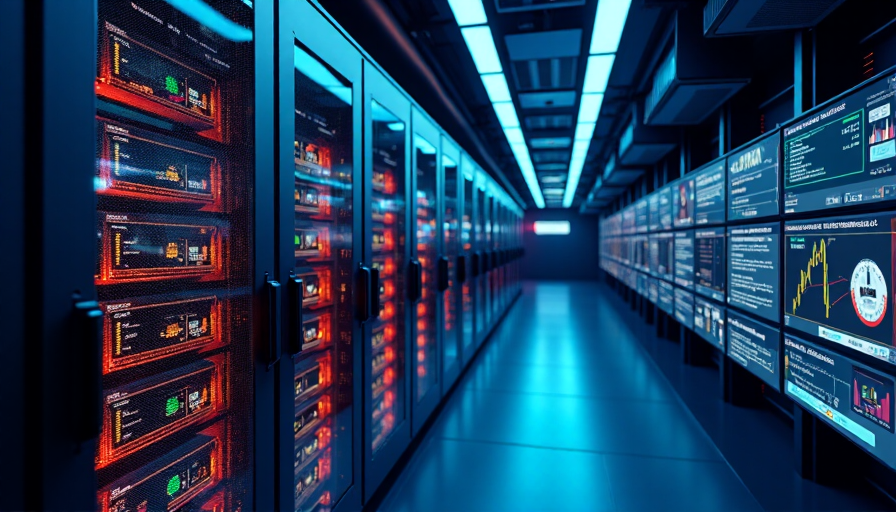
AI Innovations Amid Tariff Turmoil: A New Era of Automation
A World in Flux: Tariff Conflicts and Technological Resilience
Amid ongoing tariff skirmishes and trade uncertainties, global enterprises are turning to technology for a lifeline. With escalating tensions between the United States and China acting as a catalyst, companies are increasingly leveraging artificial intelligence (AI) and automation to reduce costs and safeguard profit margins. This adaptive trend has sparked significant changes, particularly among Indian IT firms and startups that are betting big on AI to drive efficiency and growth.
Driving Efficiency Through AI and Automation
As trade wars create unpredictable economic dynamics, corporations worldwide are quick to pivot. In boardrooms and at industry summits, stories abound of firms that have successfully integrated automation to counteract rising operational expenses. In India, the IT sector is embracing AI wholeheartedly, channeling investments into projects designed to optimize service delivery and enhance competitiveness—even in challenging market conditions.
India's Data Centre Advantage in the Global Marketplace
The narrative is equally compelling in India's booming data centre industry. With over $40 billion in committed capital, the nation is fast becoming a magnet for hyperscalers like Microsoft, Amazon Web Services, and Google Cloud. These tech giants are exploring expansion across the Asia-Pacific region as escalating costs in the United States make domestic builds less attractive.
Local Manufacturing: A Strategic Edge
Piyush Somani, CEO of a leading IT solutions provider, shared how India's domestic production of critical components, such as generators, chillers, and networking equipment, insulates its data centre projects from global tariff shocks. This local manufacturing prowess has not only protected ongoing initiatives but also spurred rapid growth in co-location deals by keeping rack rental costs among the lowest in the world.
On the flip side, despite current exemptions for semiconductors under U.S. tariffs, industry leaders anticipate targeted actions soon, particularly affecting memory modules and solid-state drives. Experts forecast that while the U.S. may suffer from steep construction costs, India's data centre projects remain relatively cost-effective, positioning the country as a strategic hub for future cloud computing expansion.
IT Services: Transforming Cost Challenges into Opportunities
The effects of global tariff policies extend beyond physical infrastructure. Indian IT powerhouses like Tata Consultancy Services (TCS) are leveraging AI as a pivotal growth engine. During recent earnings calls, TCS executives highlighted that cost-optimization initiatives have not only cushioned the impact of economic uncertainties but have also spurred demand for innovative AI solutions. This proactive adaptation underscores a broader industry trend towards integrating smart automation as a competitive strategy.
Startups: Innovating Amid Economic Headwinds
The startup ecosystem is also feeling the weight of these shifts. While some early-stage companies have experienced delays in purchase orders due to market uncertainties, many are poised to benefit from a restructuring global economy. Entrepreneurial leaders are introducing 'AI coworkers' capable of matching the productivity of multiple human agents, along with flexible, outcome-based pricing models tailored for cost-conscious markets.
Yet, challenges remain. Some observers caution that if reciprocal tariff measures by India or Europe are implemented, startups relying heavily on U.S. revenues could face new cost pressures. In response, many firms are diversifying their markets and enhancing their AI offerings to ensure they remain indispensable in a rapidly changing global landscape.
Looking Ahead: Balancing Trade Tensions with Technological Ambition
Despite the looming threat of targeted chip controls and the uncertainties of global trade, major players like Google are undeterred, ramping up investments in large language models and other AI innovations. This determination to drive down intelligence costs while expanding cloud capabilities hints at a future where technology not only survives but thrives amidst economic headwinds.
Conclusion
The dynamic interplay between tariff challenges and rapid technological advancements paints an intriguing picture of resilience and innovation. As industries navigate the choppy waters of international trade disputes, AI and automation emerge as vital tools in ushering in a new era of cost efficiency and competitive advantage. This evolving landscape signals that those who adeptly blend strategic insight with technological prowess will be best positioned to lead in tomorrow's global market.
Note: This publication was rewritten using AI. The content was based on the original source linked above.